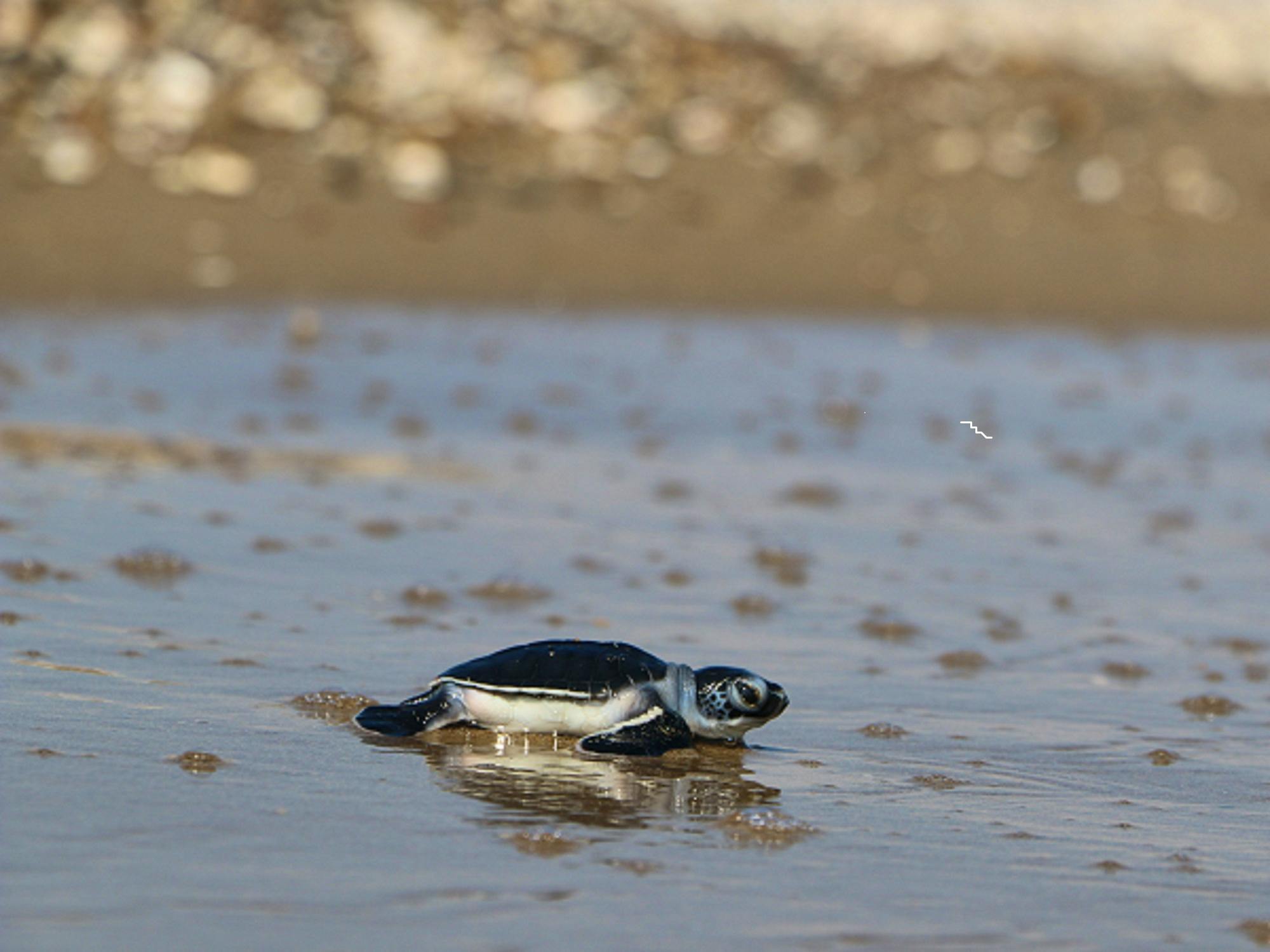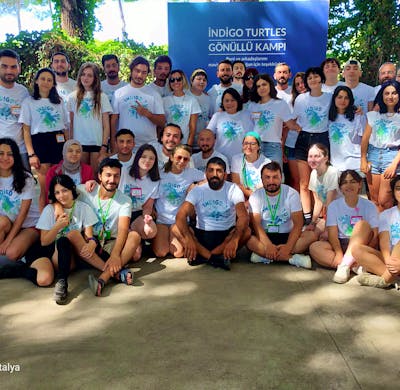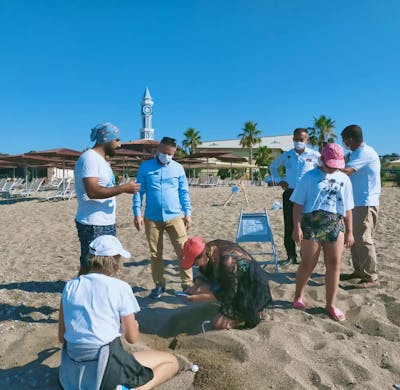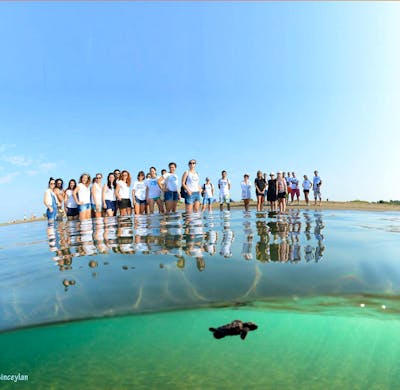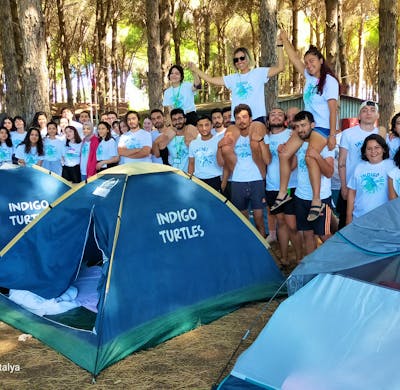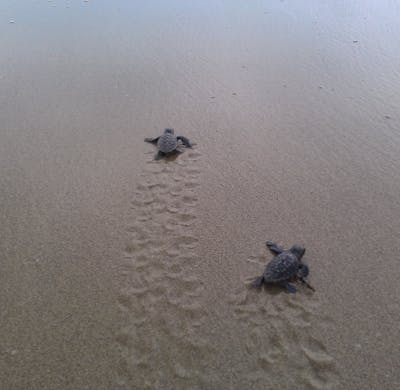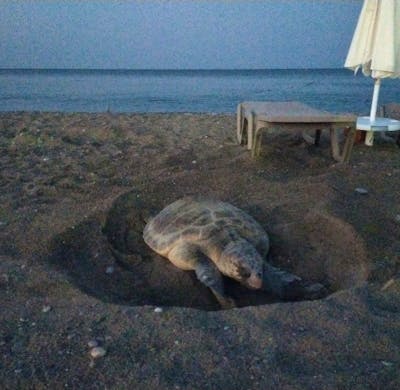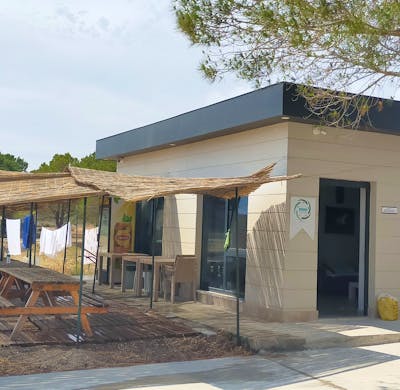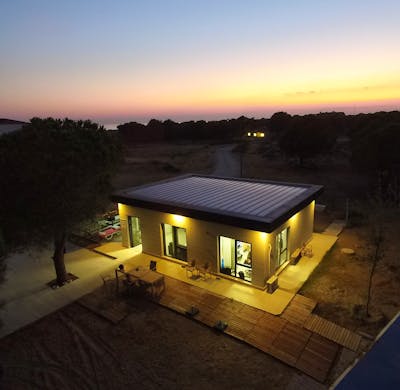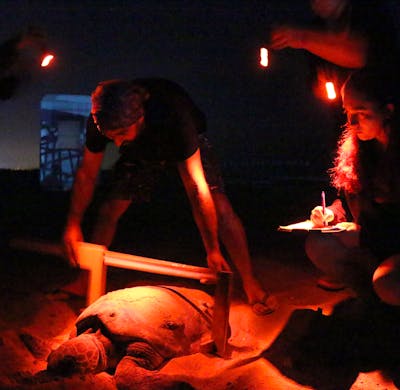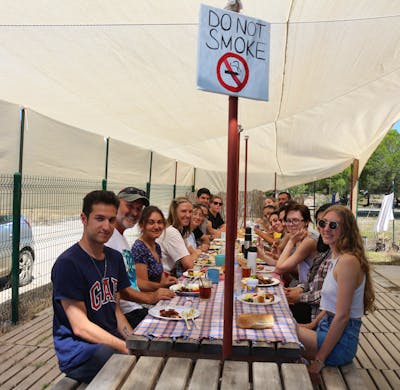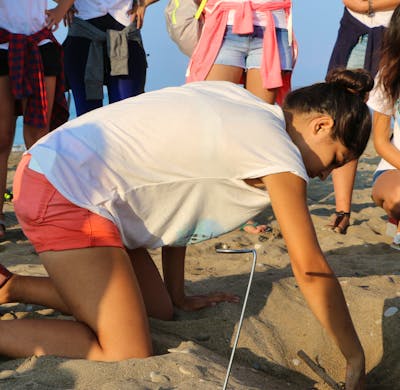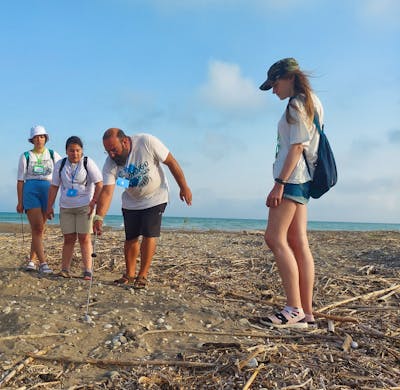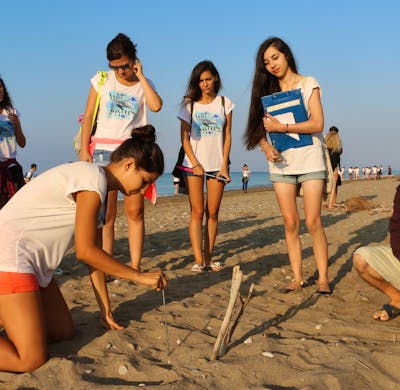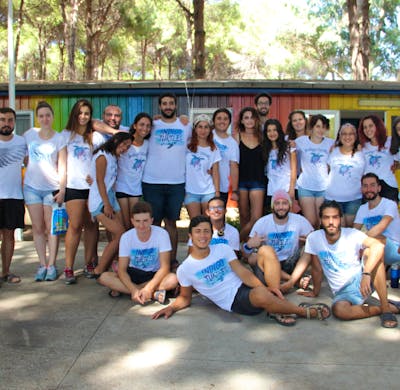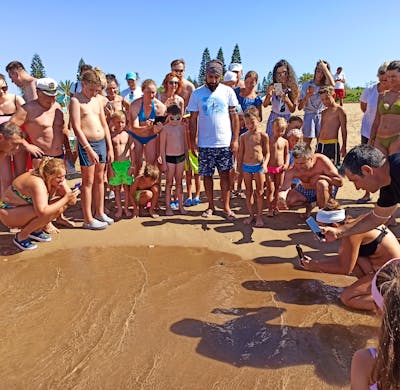Our volunteer program aimed to support the field work being carried out in
Belek and Kızılot Sea Turtle Nesting Beaches. Both Belek and Kızılot being
tourism investment zones while being important nesting areas brings extra
importance to their protection where efforts on conservation must be planned
carefully in order to ensure applicability and sustainability.
Teams formed by both international and
national volunteers, and experienced field leaders and experts in those areas
monitor the beaches throughout summer, record nests, follow nests and collect
data related about nests till baby sea turtles emerge from the nests, take
records of problems causing effect on sea turtle nests, hatchlings and
population, put cages for protection or information in needed areas and also
work on raising awareness among tourists, locals and tourism facilities.
Our volunteer program gives a chance to
be a part of a cause for nature and also get the experience on team work,
scientific work, and conservation work needed for students planning their
career on academic fields around this.
About the Project
According to Canbolat, 2004, Belek is the second largest known nesting area for
Caretta caretta in the Mediterranean. As of 2021, Kızılot is recognised as another
crucial nesting area for sea turtles. Nevertheless, the accelerated development of
both regions into prominent tourism centres poses a significant threat to the
populations relying on them as nesting beaches.
The majority of hatchlings emerging from nests on these beaches face challenges
in reaching the sea, primarily due to either natural or anthropogenic factors. Natural
causes typically involve tidal flooding of nests and predation. Human-induced
factors encompass inappropriate beach usage, presence of litter, artificial lights,
interference with adults and nests, as well as boat and fishing activities.
Vehicle access to the beach poses a threat
as it compresses nests under the sand,
hindering the emergence of hatchlings.
Deep tire tracks also serve as traps for the
vulnerable hatchlings. Likewise, the removal
of sand from beaches significantly disrupts
the beach topography, posing a severe risk
to both nests and hatchlings.
Parts of the coastline, those designated for
tourism facilities in particular, intersect with
the nesting zone of sea turtles. Sunbeds,
umbrellas, and walkways in this zone may
act as physical obstacles for adult turtles,
disrupt the natural development of eggs in
nests located under or around them, and
pose a risk to hatchlings.
Other threats to sea turtles include fishing
lines and nets, boat propellers, marine
and coastal litter, as well as noise and
light pollution. Artificial light sources pose
a particularly serious risk as they can
disorient hatchlings, causing them to
crawl landward and resulting in mortality.
Interfering with hatchlings, nests, and
adults also reduces hatchling success.
These challenges can be addressed through the implementation of sustainably
designed conservation efforts and regulations, meticulously planned and executed
in collaboration with the facilities. And this is exactly what our project is dedicated
to. The envisioned success of this initiative is poised not only to secure the ongoing
existence of sea turtle populations in the region, but also to serve as a model of
excellence for other nesting beaches facing similar threats.
Missions
- Morning shift: 5.30 to 11.00
- In the morning after returning from the field, breakfast
and cleaning (the cleaning list defined in the campsite varies)
- Night Shift: 22.00 to 3.00 (varies according to project
time)
The tasks listed above are generally routine tasks, and in
addition to these, different assignments are made within the scope of the
project.
Camp Sites
There are two options for accommodation:
1. 1.
Camps are equipped with prefabricated facilities
featuring air-conditioned rooms. These rooms include bunk beds, wardrobes,
bedside tables, and dressers.
For 2. Those who prefer sleeping under the trees,
designated tent areas are available. Individuals opting for tents are advised
to bring their own tents and camping equipment.
What to Bring
Local supermarkets typically carry a wide range of products, but it is important to
note that there might be instances where a specific product or brand you regularly
use may not be readily available.
Must Bring:
- identity card, proof of health insurance and -if applicable- driver's license
- If staying in a tent, relevant camping equipment
- Comfortable clothing suitable for walking on the beach (light colours for
morning shifts, dark colours for night shifts -for camouflage)
- Comfortable shoes for fieldwork (sneakers or sandals)
- Suitable clothing for cold and windy weather
- Regularly used medications (and prescription, if any)
- Sunglasses, sunscreen, hat
- Bed linen and pillowcases
- Thermos or water flask
- Coffee mug
- Toiletries/shower amenities
Recommended to Bring:
- Beach gear
- Insect repellent
- Prescription if prescription glasses or lenses are used
- Basic medicine kit (painkillers, muscle relaxants, burn cream, band-aids,
bandages, diarrhea and allergy medicine, etc.)
- Notepad
- Backpack
Optional:
- Camera, video camera
- Musical instruments, board games
- Tablet or laptop
- Swimming and diving equipment
- Binoculars, fieldguide books
IMPORTANT REMINDERS:
- Field work may require waking up very early or staying up very late.
- Living spaces are typically shared by approximately 30 or more people. The
ability to adapt to communal living and establish good relationships with new
acquaintances is crucial for the efficiency of the project.
- Pets should not be brought to our camps.
Medical Advice
All volunteers are REQUIRED to have health insurance (private, state, or travel
insurance) and must provide documentation proving this upon arrival.
Any known allergies or health issues requiring attention must be clearly indicated on
the application form. It is important to remember that Antalya has biting insects
such as mosquitoes and bees, and our campsite is located under pine trees.
Dietary restrictions (diabetes, vegetarian, etc.) should be clearly
stated on the application form. Since we cannot guarantee a
vegan diet, these individuals may need to cook their own meals.
No specific vaccination is required for the project. However, it is
generally recommended for individuals engaging in fieldwork to
consider vaccinations for tetanus, rabies, and Hepatitis-B.
Pharmacies, fully equipped private health institutions, and public
hospitals are conveniently located near the campsites.
The following conditions may pose a risk during fieldwork, and it is recommended to
receive a physician’s opinion about participating in the program:
- Hypersensitivity to sunlight, high temperature and humidity
- Walking impairments (including flatfoot)
- Respiratory disorders (including asthma)
- Chronic cardiovascular diseases
- Poor night vision
- Deafness (uncorrected)
- Epilepsy
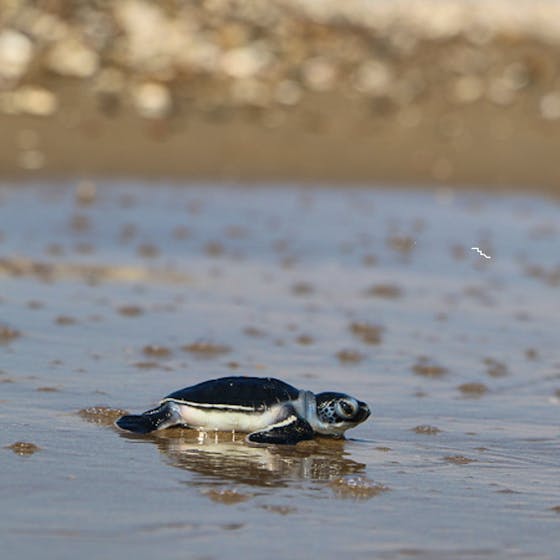
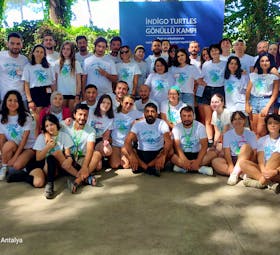
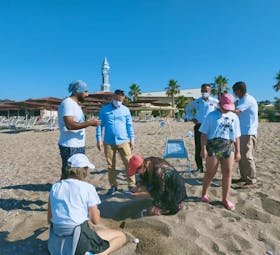
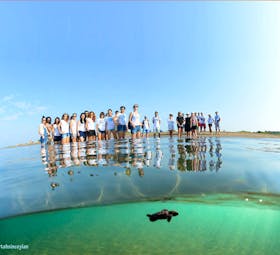
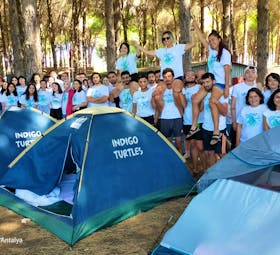

 4.8
4.8

